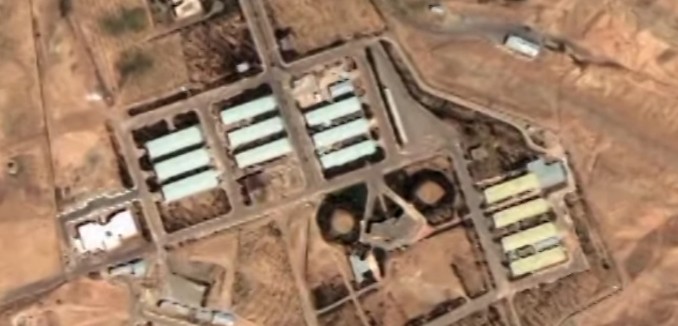In order to understand Iran’s nuclear weapons program, the International Atomic Energy Agency (IAEA) needs full access to Iran’s Parchin military installation, two experts on nuclear weapons wrote in a report published Monday.
David Albright, a former weapons inspector and current president of the Institute for Science and International Security, Olli Heinonen, former IAEA Deputy Director, and three others wrote in a report that the IAEA has inadequate means to investigate possible Iranian violations of the nuclear deal, known as the Joint Comprehensive Plan of Action (JCPOA).
According to the report, the problem is that the arrangement made for investigating Parchin, a military site where Iran is believed to have conducted nuclear weapons research, “established inadequate rules for on-the-ground investigation and environmental sampling about alleged nuclear weapons-related high explosive work at this Parchin site.”
The IAEA discovered two particles of uranium in its investigation of Parchin. The Obama administration later acknowledged this was likely an indication of an Iranian nuclear weapons program, which, according to the report “should have been a ‘red-flag’ necessitating further follow-up investigation.”
Because the IAEA was unable to follow-up on its investigation of Parchin, “the IAEA avoided drawing full conclusions about what occurred at the Parchin site, with the result being that the evidence of previous nuclear weapons research development and testing activity by Iran had effectively been swept under the rug, clearing the way for smooth passage of the JCPOA.” This meant that “Iran’s strategy of denial, site modification, refusal of access, and obfuscation successfully worked to prevent the IAEA from making a clear determination.”
However, a year and a half after implementation of the JCPOA began, it nevertheless remains essential that the IAEA gains unfettered access to Parchin. The paper explained:
Understanding how far Iran went at Parchin is an important part of understanding Iran’s work on nuclear weapons. A comprehensive understanding of this work is critical to setting a baseline for effective monitoring to ensure early detection if Iran resumes work on nuclear weapons. The issue of past activity at the Parchin site is also related to the IAEA reaching a credible broader conclusion under the Additional Protocol that all nuclear material has been accounted for and has remained in only peaceful activities. The past activities at Parchin stand as a roadblock to such a determination. Moreover, the JCPOA, in Section T, Annex 1, bans certain nuclear weapons development activities, some of which are suspected to have occurred at Parchin, and places controls on associated dual-use equipment.3 Section T-controlled equipment was used at this Parchin site, as well as other locations at Parchin, and may still be used at Parchin or at other locations outside of required JCPOA controls.
The P5+1 should require the IAEA to further investigate the Parchin case. The inspection effort should be facilitated by Iran allowing access to key individuals and additional sites, including those near the Parchin high explosive bunker and other associated locations, such as sites involved in multi-point detonator work and manufacturing facilities for explosive chambers. It may well find other important information. The lack of on-going access to Parchin calls into question the adequacy of the verification of the JCPOA and the deal’s long-term utility to deter Iran from obtaining nuclear weapons. Like previous nuclear agreements with North Korea, where the downplaying of IAEA verification helped doom those agreements, the JCPOA currently risks the same fate. It should be noted that North Korea proceeded with undeclared plutonium metallurgy and other nuclear weapons related work outside nuclear facilities subject to IAEA monitoring under the 1994 Agreed Framework, enabling North Korea to continue working on nuclear weapons and to build them more quickly after withdrawing from the Agreed Framework in late 2002.
Top Iranian political and military officials have consistently said that they will never allow inspections of military sites.
[Photo: JewishNewsOne / YouTube ]




